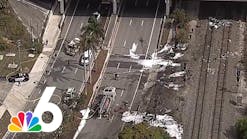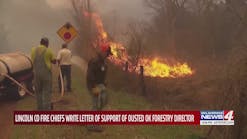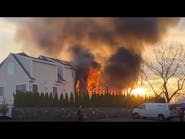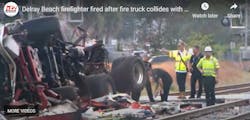Within an hour, they determined what caused the fire and where it started - not bad for a group of seventh- and eighth-graders.
Firefighters and federal agents from the bureau of Alcohol, Tobacco, Firearms and Explosives set the fire in the abandoned home recently for Wallace Middle School students participating in the school's Crime Scene Investigation Reading Camp.
The pilot camp, made possible by a $20,000 state grant, focuses on reading instruction with a connection to science, math and social sciences.
``There are so many of those 'CSI' shows on TV,'' school Principal Belinda Mullins said. ``They're so popular with the kids, and we thought we'd capitalize on that.''
While participants spend half of the two-week camp focused on reading, they devote the rest of their time to activities to forensic science.
They'll also learn how to extract DNA, investigate a murder scene and lift fingerprints, and read nonfiction and fiction books related to the camp's theme.
They learned about the tools of fire investigation and how to apply those techniques.
``I think it makes it real to them,'' Mullins said. ``We hope that they will improve their reading and that they'll see some new career opportunities.''
Some students, like 12-year-old Laura Green, seemed to soak up what teachers hoped they would. Laura often watches crime investigation shows but said the real-life experience gave her more insight to law enforcement.
``I actually know now what they do and how hard they have to work,'' she said. ``I used to want to be a veterinarian, but being an investigator sounds way cooler than that.''
She initially hesitated about attending the reading camp.
``At first I thought it would be boring because it had the word 'reading' in it,'' Laura said. ``But when I got here, it was a lot more than that. We're reading a novel, but it's a really good book. I don't find many good books.''
Incorporating reading with camp-like activities and crime-scene investigation has been key to keeping students interested in the summer months.
Students appeared engaged as investigators led them through the burned house, dressed them in firefighter gear and explained their jobs. They eagerly stored evidence in metal cans and drew diagrams of the crime scene.
``This was a way for us to show that they just don't (read) in school,'' said Liz Phillips, a middle-school teacher. ``They do this all their lives. It's been wonderful to see them so excited about reading and research. I don't know how we're going to beat this in the future.''





